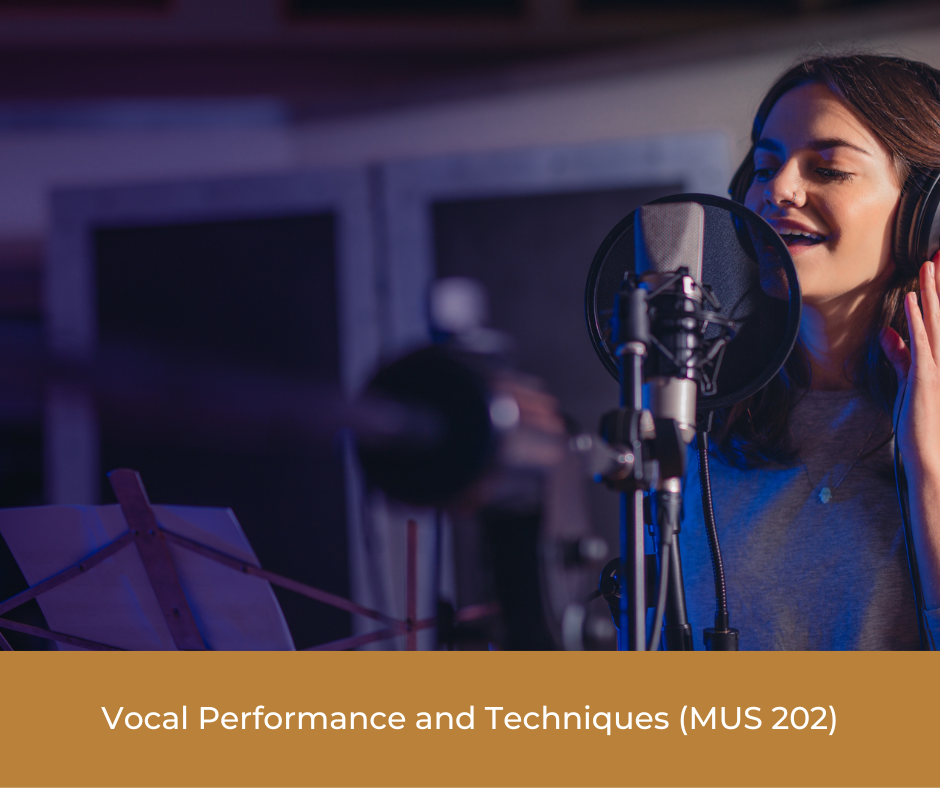Course Description – Vocal Performance and Techniques (MUS 202):
MUS 202 is a comprehensive course designed for aspiring vocalists. It focuses on the development of essential vocal techniques, breath control, diction, and interpretation. This course provides students with the opportunity to refine their singing abilities across a diverse range of musical styles.
Outline of Major Content Areas:
- Fundamentals of Vocal Technique:
- Exploration of proper vocal posture and alignment.
- Breath control exercises to enhance vocal sustainability.
- Warm-up routines for vocal flexibility.
- Diction and Articulation:
- Mastery of clear and effective diction.
- Techniques for precise articulation in various languages.
- Tone Quality and Expression:
- Development of tone quality and resonance.
- Interpretation of musical nuances to convey emotions.
- Repertoire Study:
- Exploration of songs from different musical genres.
- Selection, analysis, and performance of solo and ensemble pieces.
- Performance Skills:
- Stage presence and audience engagement.
- Effective microphone use and amplification techniques.
Course Learning Outcomes:
Upon successful completion of MUS 202, students will be able to:
- Demonstrate proficient vocal techniques, including breath control and vocal warm-up exercises.
- Exhibit clear and precise diction in their vocal performances.
- Produce a well-rounded and resonant vocal tone.
- Interpret musical pieces effectively, conveying the intended emotions.
- Perform solo and ensemble pieces across various musical styles with confidence.
- Showcase stage presence and audience engagement skills.
Methods for Assessing Student Learning:
Assessment in this course will encompass practical vocal evaluations, theoretical assessments, and performance-based criteria, including:
- Vocal Performance Assessments: Regular evaluations of vocal techniques and performances.
- Diction and Articulation Exercises: Assessment of clear diction and articulation.
- Repertoire Performances: Solo and ensemble performances across different musical genres.
- Listening and Interpretation Exercises: Analysis of professional vocal performances.
- Stage Presence Assessment: Evaluation of stage confidence and engagement.
- Class Participation: Active engagement in practical vocal exercises and discussions.
These assessments will enable students to not only enhance their vocal abilities but also gain the skills required for compelling vocal performances across a wide spectrum of musical styles.
